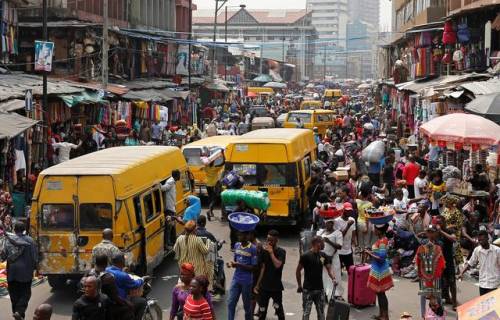Global Goals: How Sustainable Is Our Approach?
Posted by Samuel on Tue 31st Aug, 2021 - tori.ng
When the international community transitioned from the Millennium Development Goals (MDG), the world was agog and received the news with joy, excitement, and anticipation for what is to come.
There were multiple reasons for the excitement. My excitement was mainly due to the critically important leadership role that young people (ages 18 to 35 according to the 2009 Nigerian Youth Policy) will play in this transition, and ultimately in achieving the new set of goals.
For starters, the planning and development of the MDGs was one of the few areas in which youth were included and had important roles at the implementation stage. This in turn has set the tone for more widespread youth involvement.
Many programmers and watchers agreed that since the MDGs had given the needed foundation, the sustainable development goals were going to be easily achieved and this made it easy for many young people to sign up.
However, 6 years after, are there signs that we will get the desired results? Are we working with a sustainable approach?
As it stands, just like in the case of the MDGs, there are different realities for different groups/countries and they are all working towards achieving the same goals. How then do we expect to have the same results at the end of 2030?
Let’s take poverty eradication for instance. In Low- and Middle-Income Countries (LMIC), the chances of lifting people out of poverty gets smaller with the pandemic striking and forcing economies to either shrink or totally lockdown. Whereas, many other bigger countries were able to leverage on production of various needed/essential materials during the lockdown to keep their economies afloat.
The underlying inequalities which might make LMIC slide further down were existing during the setting of the goals, but it doesn’t look like anyone paid serious attention to them. In 2016, UNESCO confirmed that ‘Inequality not only erodes our collective efforts to achieve economic growth, reduce poverty and increase social mobility, it also increases political tension and all too often fuels conflict and instability.’
As the world celebrated the International Youth Day, I was drawn into how much young people have committed into the SDGs and it kept me awake, as I wondered, ‘aren’t they fighting in a bubble?’
The long top to bottom approach of government in Nigeria and other sub-Saharan African means that government at various levels design programmes and projects without consulting active players in various sectors and expect the industry players to come up with plans that fit into their own agenda. On the altar of politics, people-driven plans have been brutally sacrificed.
In my opinion, as I am concerned with the rate of our success in relation to the level of work done by young people, it is important for policymakers to leave their high horses and engage more with the people on the field and take real-time data from them. While we have general data from Global bodies on different areas, it is now essential that we incorporate our real reflection, as documented by the (young) people working on the field to enable us work concertedly and with a focus on issues that matter per time.
It is not all about what is not working. In the last 6 years, our hopes have grown and light shone on various paths. The spotlight on gender-based violence has given men and women the chance to seek help; we have witnessed improved attention on mental health and innovative farming systems. Young people have innovatively delivered health care services to underserved population and are also bridging the gap in tech. All these milestones have been despite stifling political environments and unfriendly policies.
In celebrating young people, I acknowledge the resilience and innovation they have brought to the table. The sustainable development goals are bold, audacious, and ambitious. Though not legally binding on anyone (as there are no sanctions for those who do not meet up), it has given countries and especially young Nigerians, a sense of work and they have given it all their attention. What they must not do is get carried away by the needless media attention that takes energy away from delivering tangible results for their people and not the applause of onlookers.
As a collective agenda, young people have since broken the barriers that were built from generations before them, and they have provided a common front for agitating for issues that affect them all.
By the year 2030 (and in the years leading to it) Nigeria will continue to reap from the good work of young people across board but this is the time for generational collaboration to ensure that energy and wisdom are combined for the greater good.
***
Joy Amafah, a Public Health and Policy Advocate, writes from Abuja.


















































